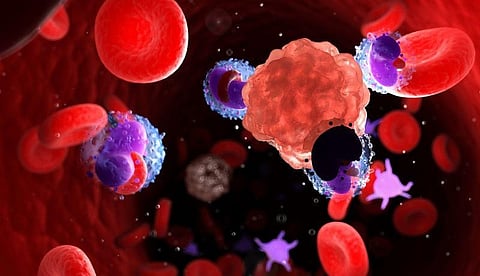THURSDAY, March 21, 2024 (HealthDay News) -- For hematologic malignancy (HM) patients admitted to the intensive care unit (ICU), survival is 49 percent at seven days and 21 percent at 12 months, according to a study published online March 11 in Intensive Care Medicine.
Laveena Munshi, M.D., from Mount Sinai Hospital at the University of Toronto, and colleagues conducted a prospective observational study involving HM patients admitted to ICUs from 2018 to 2020. Survivors were followed for long-term survival and functional outcomes.
A total of 414 patients were enrolled: 51 and 38 percent had acute leukemia and lymphoma/multiple myeloma, and 40 percent had received a hematopoietic stem cell transplant (HCT). The researchers found that acute respiratory failure and sepsis were the most common reasons for ICU admission (50 and 40 percent, respectively). Forty-nine percent of participants were alive at seven days after discharge. For the entire cohort, the 12-month survival rate was 21 percent (43 percent among ICU survivors). The proportion of survivors with moderate-to-severe frailty was 42, 14, and 8 percent at seven days, six months, and 12 months, respectively. The median functional independent measure was 80 at seven days. At six and 12 months, physical function, pain, social function, mental health, and emotional well-being were below age- and sex-matched population scores. Lower 12-month survival was seen in association with frailty, allogeneic HCT, kidney injury, and cardiac complications during ICU.
"Considering the complex interplay between critical illness and cancer, we demonstrate that critical illness may impact long-term survival in HM/HCT patients," the authors write.
Abstract/Full Text (subscription or payment may be required)


